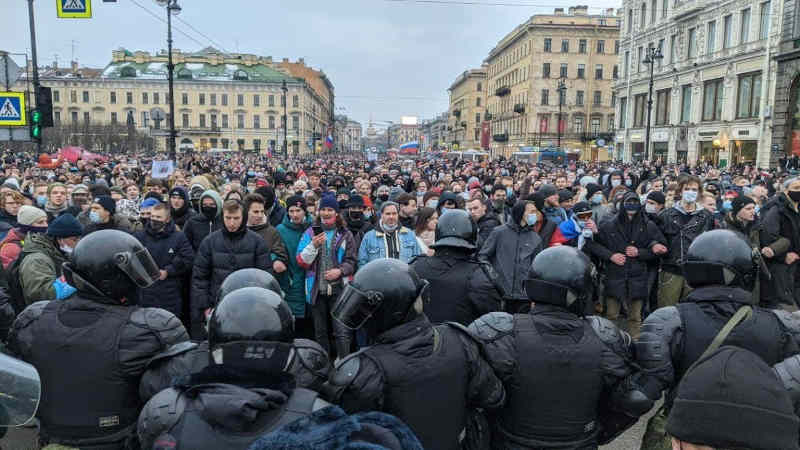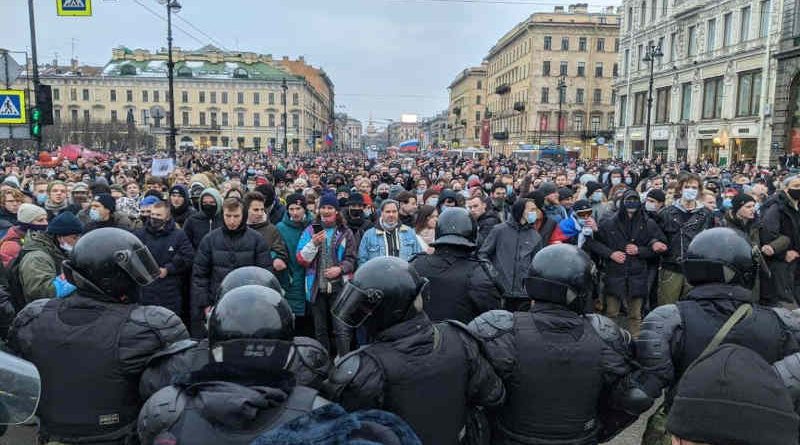New Protests Planned in Russia to Get Alexei Navalny Released from Jail

Navalny was jailed for two and a half years in a penal colony in February for violating parole while recovering from the poisoning in Germany.
By Rakesh Raman
Supporters of jailed Kremlin critic Alexei Navalny have decided to hold new protests to secure his release. The team of supporters has launched a website to gather signatures of people who can participate in street protests.
As protests are continuing in Russia, the authorities have detained more than 10,000 protesters who allege police brutality and human rights violations. Navalny’s supporters say that the new website that they have launched will be the main platform to inform about their plans, although it is very difficult to access the website which is ridiculously protected.
The website aims to collect 500,000 signatures of people willing to occupy the streets in support of Navalny. A Russian military court on Monday (March 22) dismissed Navalny’s complaint demanding investigation into his August 2020 poisoning with the Soviet-era nerve agent Novichok.
Navalny, 44, was jailed for two and a half years in a penal colony in February for violating parole while recovering from the poisoning in Germany. Navalny – who is the main opposition leader in Russia and an anti-corruption activist – has accused Russia’s security agencies of attempting to assassinate him at the orders of President Vladimir Putin, although the Kremlin has refuted the allegations.
Earlier this month (March), the Council of the European Union decided to impose restrictive measures on four Russian individuals responsible for serious human rights violations, including arbitrary arrests and detentions, as well as widespread and systematic repression of freedom of peaceful assembly and of association, and freedom of opinion and expression in Russia.
Also, a U.S. State Department spokesperson said that the U.S. welcomes the EU Council action, adding that the U.S. and EU actions send a clear and unified message that Russia’s attempted assassination of Navalny with a chemical weapon and abuse of human rights have severe consequences.
This is the first time that the EU imposes sanctions in the framework of the new EU Global Human Rights Sanctions Regime which was established on 7 December 2020. The sanctions regime enables the EU to target those responsible for acts such as genocide, crimes against humanity and other serious human rights violations or abuses such as torture, slavery, extrajudicial killings, arbitrary arrests or detentions.
Note: The EU and the U.S. have been imposing sanctions on various states and their functionaries over human rights violations, crimes against humanity, and other criminal activities. But such sanctions are simply ignored by the rogue states and their leaders who continue to commit crimes against their citizens with full impunity. The imposition of sanctions is an ineffective measure to stop state crimes.
By Rakesh Raman, who is a national award-winning journalist and social activist. He is the founder of a humanitarian organization RMN Foundation which is working in diverse areas to help the disadvantaged and distressed people in the society.





